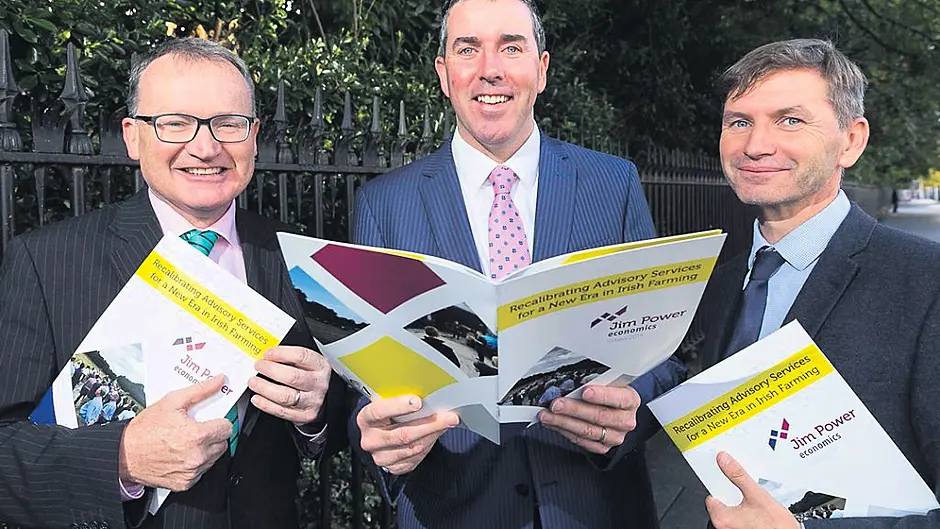Irish farmers are ill-served by a dated farm advisory model that pitches private sector advisers in competition with Teagasc.
IRISH farmers are ill-served by a dated farm advisory model that pitches private sector advisers in competition with Teagasc.
According to leading economist Jim Power, collaboration is required to deliver better outcomes for Irish farmers.
That’s one finding of a report undertaken by Power and commissioned by the Agricultural Consultants Association (ACA) whose members provide advisory services to 55,000 farmers nationwide, headed up by Skibbereen man Owen O’Driscoll.
‘Recalibrating Advisory Services for a new Era in Irish Farming’ is the first major review of farm advisory services since the establishment of Teagasc 31 years ago.
At a time of dramatic changes in agriculture and food production and evolving consumer and regulatory demands, the over-arching recommendations of the ACA report are to build knowledge-based farming and move more farmers up the value chain; bridge the accessibility gap between available research and its application on farm; provide structured training to ensure private advisors are equipped to facilitate delivery of evolving CAP policy and climate change objectives, and build stronger, more impactful and more efficient public and private sector research and advisory supports through increased public private collaboration.
Of an estimated 137,500 farmers in Ireland 82% work with a farm adviser. Of these, over one third (almost 43,000 farmers) are advised by Teagasc at a delivery cost of almost €40m per annum, of which €27m is public funding.
Just under two thirds (70,000) are advised by the private sector with zero public funding.
As a result of this split, a majority of Irish farmers miss out on critical, publicly funded research and information tools that are only freely available via Teagasc advisers.
Most farmers also lose out as private sector advisers have no access to publicly-funded training valued at c€9,000 per annum to Teagasc advisers. ‘Agri-food accounts for 7.7% of gross national income, 173,000 jobs and €13.7bn in export income, or 10% of total exports,’ explained Jim Power. ‘A knowledge economy is as critical for Irish farming as it is for foreign direct investment. To succeed, Irish farmers will need to have the highest level of skills and knowledge possible and be at the cutting edge of the science that is increasingly driving global food production.’
He added that knowledge-based farming needs smarter resourcing to combine the reach and expertise of private practitioners with the research capability and resourcing of Teagasc. ‘It’s a model that needs to move from ‘form-filling’ advice on EU schemes to increased application of Teagasc’s leading edge research on more and more Irish farms,’ he said.
Owen O’Driscoll, president, ACA, said: ‘Farm advisers are uniquely positioned to influence behavioural changes on-farm and to support the delivery of national and international policy objectives on issues like sustainability and climate change.’
Simply put, sectoral targets cannot and will not be achieved if private sector advisers who account for 62% of the farm advisory market, have restricted access to publicly funded research or are precluded from publicly funded structured training.
‘There is now a compelling case for Teagasc and private consultants to develop a model and working relationship where they can work together and co-operate in the delivery of the best possible research and local advisory service to Irish farmers,’ added Mr Power.








